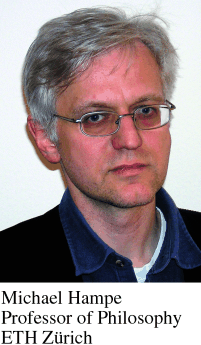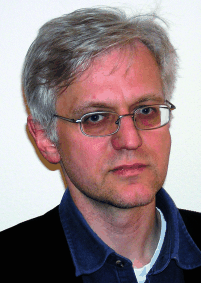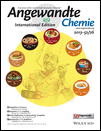Editorial: Science on the Market: What Does Competition Do to Research?
“Everybody, who excels in something …︁ will find his recognition, …︁ a recognition independent from any lobbying of parties, but relying on his real merits alone.” That is what, according to Thucydides, Pericles allegedly said in 430 BC. Not the family you are born into, the wealth that you did or did not inherit, but rather your actions as an individual, and how successful you were in your actions, should decide your recognition. The values of this meritocratic society are still with us, especially in the sciences. Not which schools or universities somebody attended, but rather what he or she found out or wrote should decide about his or her merits in the scientific community.1

But merits should be evaluated by standards. If the tragedies of Sophocles had not earned the first prize in the ancient dramatic competitions, but lost against works of art we consider today as minor, what would we think then about the standards of evaluation? It is easy to have an objective competition in sport. But is it also possible in the arts and the sciences? We still trust in competitions as means of evaluation, even if we compare knowledge. But how can the value of knowledge be quantified? By measuring the amount someone knows, or its relevance?
Some know a little, a few a lot, but nobody knows everything, although claims have been made about knowledge of the world as a whole since ancient times. It is a living animal, said Plato, a clock according to Leibniz, a computer program says Stephen Wolfram. These are analogies that arise from the allure for the living, the mechanical, and the calculable. These fascinations are related to extensions of the claims that knowledge is universally valid. And these extensions, again, are related to competitions. Today, markets have become the source of supposedly objective information about values and relevancies, and also about the value and relevance of research. What does this development do to science?
Modern science produces and tests knowledge that refers to finite sets of objects. Very special objects and processes are isolated, prepared, and carried out in labs: helium atoms and liver cells, processes of digestion, and assistance after accidents, depending on the experimental subject. In order to transform the results from these experiments into knowledge, they have to be reproducible all over the world. This is only possible if the procedures are highly standardized. Focusing and disciplining scientific experience like this is the reason for the technical success of modern knowledge. Universal speculations about nature, man, or the world as such lead to no practical consequences. Scientific knowledge has to have a clear area of application.
The world, or nature as such, cannot be prepared in a lab. There is no place outside the world from which it could be observed. Against the background of this Kantian epistemology, there can be no knowledge about the world or nature as a whole. Cosmology and philosophy of nature have to be speculative. The borders of repeatable experimental techniques limit the possibilities of our justified knowledge.
Although this has been known for at least 250 years, universal claims of knowledge do not disappear. Books like that by Stephen Hawking about God’s actions before the Big Bang are still sold. The reason for this might be—as Kant thought—that man’s urge for knowledge beyond the limits of his understanding cannot be disciplined. But I believe this also comes from the competitive funding of the sciences.
The technical, and thereby the financial, efforts for the production and review of knowledge have become bigger and bigger, most notably in high-energy physics and medical research. It is mainly the taxpayer who has to cover these costs. Therefore scientists have to advertise their projects to the layman in order to win competitions for money. They are brought into contests to justify that it is their own scientific aim that the taxpayer should realize with his or her money. The idea that competitions are good for those who compete, that the challenge makes the competitors develop their ideas more clearly, is grounded in sports and the free market. But experience from the market shows also that some overstatement can help in contests. That the neuroscientific refutation of free will needs more funding than research in the evolution of the flatworms seems obvious. That the search for the last buildings blocks of matter is a more ambitious and therefore necessarily more expensive goal for science than the search for the second manuscript of a minstrel poem appears clear to everyone. The more ambitious and more spectacular an aim of knowledge, the more it seems to deserve funding. Is it a good thing, that science is put like this into the marketplace, that it is driven to expand in order to win money for its own sake, because money is the market signal for relevance, and not just because it is the intrinsic scientific interests of the researchers to move into more complicated projects?
Firstly, it is certainly not a good thing if institutions committed to knowledge and truth, such as the sciences, develop a tendency for overstatements, because overstatements are not the truth. Secondly, there is an idea that competition is good for competitors everywhere, that it strengthens them and makes it more likely that they reach their goals, not only in business but also in schools and universities. This idea is a guess or an analogical conclusion, and therefore is not valid. Where is its empirical proof? Claims from macroeconomic and business studies are mathematically formulated, but very rarely experimentally tested. One cannot put the economy of a country into a lab. There are no experiments that test hypotheses about global markets. There are only more or less complex simulations, and historical experiences. But viewed against the rigorous standards of experimental physics and chemistry, most economic theories are mathematical speculation.
If fundamental claims of a speculative discipline are transferred by analogy to a new area of knowledge, one gets a second-order speculation. Firstly, somebody believes only in a theory that applies to certain objects. But because the belief is so strong, the hypotheses about these objects are applied also to a completely new field. If such a belief is not tested but taken as a fundamental truth, then one is confronted with an ideology. Ideologies are not only belief systems that are false but nevertheless spread to control the actions of people. Ideologies can also be described as the result of an untested extension of a knowledge claim: Firstly a confirmed hypothesis (say, about business) is taken to be a truth and then is mutated into a general truth (say, about how to organize the public funding of research and education).
If you can show that starving mice live longer and advertise that the reduction of calories leads to a longer life, you ideologize your knowledge. As a result in research that applies only to mice is less spectacular than one referring to all living creatures, including humans, scientists in a competitive situation might use this overstatement to get more money.
This means that the idea that marketlike competition is good for science is part of an ideology, since there is no empirical proof that scientific systems with competitive funding have produced more knowledge, and especially more reliable knowledge than those that are not organized in this way. Lavoisier, Darwin, and Einstein produced their insights in projects that were not competitively funded. Furthermore, it might well be that the ideology of the market supports the tendency of ideologizing knowledge in the sense that one ideology creates many more. In the case of the sciences, this would indeed be greatly damaging. If sciences in competition tend to overstatement, that is, to lying, marketlike competitions would undermine their fundamental commitment to truth.
This consideration is just a guess, not knowledge. But it is sufficiently plausible to function as a testable hypothesis. Research in the history of science could look at the developments of overstatements and frauds in the sciences. Have there been more since the introduction and rise of competitive funding? If such a correlation were found, this historical insight could help to detect and criticize a central ideology of science policy.





